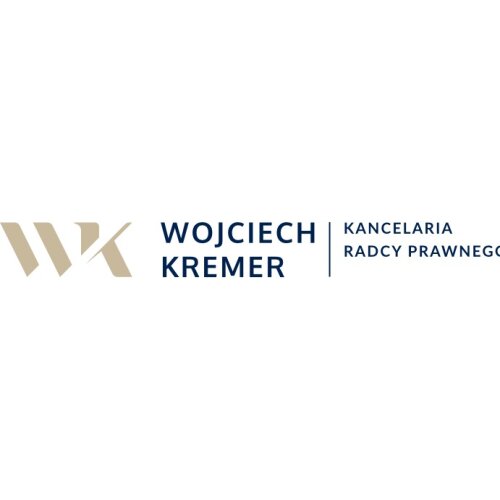Best Conveyancing Lawyers in Krakow
Share your needs with us, get contacted by law firms.
Free. Takes 2 min.
Free Guide to Hiring a Real Estate Lawyer
List of the best lawyers in Krakow, Poland
About Conveyancing Law in Krakow, Poland
Conveyancing in Krakow, Poland, refers to the legal process of transferring ownership of real estate from one party to another. This process is critical whether you are buying, selling, or inheriting property in Krakow. It involves various legal and administrative steps including drafting and reviewing contracts, conducting due diligence, registering the transfer with the local land registry, and ensuring compliance with Polish law. Because property law in Poland can be complex and is subject to specific local rules in Krakow, many people seek professional legal assistance to navigate the conveyancing process smoothly and securely.
Why You May Need a Lawyer
There are several situations in which legal help is essential for conveyancing in Krakow. Common scenarios include:
- Purchasing or selling property as an individual or business - Inheriting real estate and clarifying ownership rights - Resolving property boundary or title disputes - Reviewing and negotiating contracts to protect your interests - Dealing with mortgages, liens, or other encumbrances - Ensuring compliance with Polish law regarding taxes, zoning, and permits - Preventing or resolving issues relating to joint ownership or cohabitation agreements - Handling legal obligations if the seller or buyer is not a Polish citizen - Facilitating the transfer of property in divorce or family settlements - Registering property transactions with the proper authorities
Working with a lawyer helps you avoid pitfalls, unexpected costs, and possible legal disputes down the road.
Local Laws Overview
Polish property law is governed by the Civil Code and is supplemented by regulations at the national and municipality levels. In Krakow, specific rules may also apply regarding heritage buildings, development zones, and protected areas. Key aspects to consider include:
- All real estate transactions involving title transfer must be notarized by a Polish notary - Title to real estate is only legally transferred upon registration in the local Land and Mortgage Register (Księga Wieczysta) - Foreigners face specific restrictions and may require permits to buy certain types of property - Due diligence is necessary to confirm the seller’s rights and to ensure there are no encumbrances - Both buyer and seller must pay relevant fees and taxes, including a civil law transaction tax - Any financing, such as a mortgage, must be duly registered - Local planning and zoning rules may affect what can be done with the property
Attention to local Krakow regulations is especially important due to the city's historical heritage and special urban planning zones.
Frequently Asked Questions
What is the role of a notary in conveyancing in Krakow?
A notary is a public official authorized to prepare and certify deeds of property transfer. Without a notarized deed, a real estate sale or transfer in Poland is not legally binding.
Can foreigners buy property in Krakow, Poland?
Yes, but there may be additional requirements. Citizens of EU and EEA countries generally do not face restrictions, while non-EU buyers may require a permit from the Ministry of Internal Affairs for some types of properties.
How long does the conveyancing process take?
On average, conveyancing in Krakow can take several weeks to a few months, depending on due diligence, mortgage arrangements, and the land registry schedule.
What costs should I expect during conveyancing?
Typical costs include notary fees, land and mortgage register fees, civil law transaction tax (usually 2 percent of the property price for secondary market purchases), legal fees, and sometimes loan arrangement fees.
What documents are needed to buy or sell property?
Key documents include an excerpt from the land and mortgage register, ID documents, proof of ownership, property plans, and a certificate confirming no tax arrears.
Is it necessary to conduct a property inspection before purchase?
While not legally required, it is highly recommended to conduct both legal and technical due diligence to uncover any potential issues before completing the transaction.
How is ownership transferred?
Ownership is transferred through a notarized deed and becomes legally effective only after registration in the Land and Mortgage Register.
What happens if there is an existing mortgage on the property?
Any encumbrances such as mortgages must be disclosed and addressed before or during the transaction. The buyer may negotiate for the mortgage to be cleared as a condition of sale.
Do both buyer and seller need to be physically present?
Both parties usually attend the notarization, but it is possible to appoint an attorney through a notarized power of attorney if one cannot be present.
What if I discover legal issues after buying the property?
If a seller misrepresented the property’s status, the buyer may have grounds for a legal claim. It is important to consult a lawyer promptly to assess possible remedies.
Additional Resources
For those seeking trustworthy information or legal support, consider these resources:
- The National Chamber of Notaries (Krajowa Rada Notarialna) for finding certified notaries - The District Bar Council in Krakow (Okręgowa Rada Adwokacka w Krakowie) for contact details of local lawyers - The Krakow City Hall (Urząd Miasta Krakowa) for property tax and land use regulations - The Land and Mortgage Register Office (Wydział Ksiąg Wieczystych) at the District Court in Krakow - Real estate associations and consumer advice centers specializing in property transactions
Next Steps
If you are considering purchasing, selling, or dealing with any other real estate matters in Krakow, it is wise to take the following steps:
- Make a list of your questions or concerns related to your planned transaction - Obtain all relevant documents and information about the property - Contact a local lawyer specializing in property and conveyancing law in Krakow - Arrange a consultation to discuss your situation and understand your options - Allow your lawyer to guide you through the due diligence, drafting, and contract stages - Ensure all required procedures, including notary appointments and registration, are followed precisely
Legal counseling in conveyancing can help safeguard your interests and bring peace of mind. Do not hesitate to seek professional help, especially in unfamiliar legal environments.
Lawzana helps you find the best lawyers and law firms in Krakow through a curated and pre-screened list of qualified legal professionals. Our platform offers rankings and detailed profiles of attorneys and law firms, allowing you to compare based on practice areas, including Conveyancing, experience, and client feedback.
Each profile includes a description of the firm's areas of practice, client reviews, team members and partners, year of establishment, spoken languages, office locations, contact information, social media presence, and any published articles or resources. Most firms on our platform speak English and are experienced in both local and international legal matters.
Get a quote from top-rated law firms in Krakow, Poland — quickly, securely, and without unnecessary hassle.
Disclaimer:
The information provided on this page is for general informational purposes only and does not constitute legal advice. While we strive to ensure the accuracy and relevance of the content, legal information may change over time, and interpretations of the law can vary. You should always consult with a qualified legal professional for advice specific to your situation.
We disclaim all liability for actions taken or not taken based on the content of this page. If you believe any information is incorrect or outdated, please contact us, and we will review and update it where appropriate.













